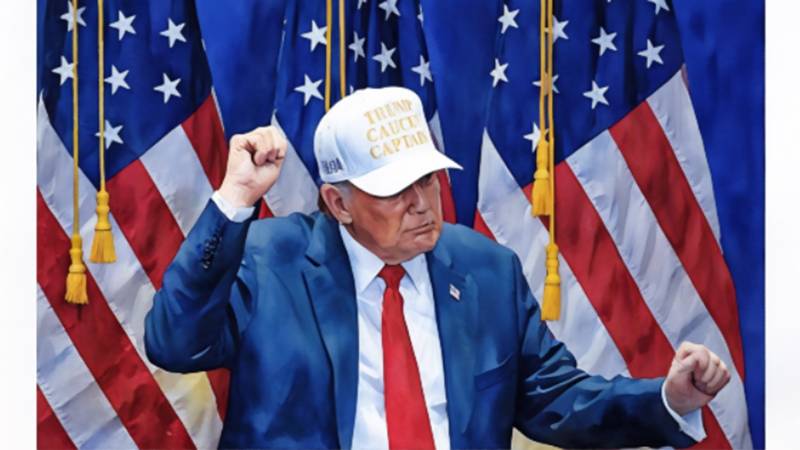
The election of Donald Trump signifies the advent of a new geopolitical era. From the United States of America to Europe, from Europe to the Middle East, and from the Middle East to Asia, the global landscape will undergo a fundamental transformation.
We consider first the case of Europe. In the aftermath of Trump's electoral victory in the United States, the German government was swiftly dissolved. This was followed by a meeting between the German and French defense ministers. Subsequently, Italy issued a statement emphasising the necessity for a professional army.
In other words, Italy indicated it lacked the financial resources to cover the two interest payments on its gross national product to NATO and requested assistance from the European Union.
In response, the European political community held a meeting in Hungary. The election of Trump has prompted widespread concerns among Europe's policymakers. There is a sense of urgency in Europe, with questions being raised about how to respond. Trump's priority will be the interests of the USA and addressing the internal problems of his own country.
It seems plausible to suggest that Marine Le Pen will emerge triumphant in the French presidential election. Similarly, the Christian Democratic Union (CDU) of Germany is poised to secure a victory in the forthcoming German federal election.
The need for different approach to German foreign policy may result in a resurgence of the Alternative for Germany (AfD) party. A power struggle is anticipated between the AfD and the CDU. Furthermore, a power struggle between the states of Berlin and Bavaria is to be expected. The social state system in Germany has demonstrated a decline in efficacy, with indications that this trend will persist. It seems likely that Germany will hold elections in March. Also ,the current pro-European Union government in Poland is expected to be replaced.
The aforementioned process suggests that Europe is on the precipice of a new crisis as Trump prepares to take office. In essence, the EU must reorganise and establish a coherent strategy.
In the contemporary era, characterised by the presidency of Donald Trump, we may anticipate the growth of multipolarity within the global system
Moving our attention towards the east, Turkey plays an important role within the North Atlantic Treaty Organisation (NATO) and is a significant contributor to the West. It possesses a formidable military force. The United States' primary objective is to impede the advancement of China's Belt and Road initiative. Of particular significance is the role of Turkey in this project. Trump will seek to negotiate an agreement to limit Turkish participation here.
In other words, the Trump administration will likely propose a new air defence and F-35 sale to Turkey in exchange for Turkish neutrality with respect to China and Russia. It remains to be seen whether Turkey will accept this proposal. It is likely that trade and technology disputes will commence in the near future.
In the contemporary era, characterised by the presidency of Donald Trump, we may anticipate the growth of multipolarity within the global system.
Let us now turn our attention towards the MENA region that is torn apart by Israel’s war in Gaza, the West Bank and Lebanon – a conflict which has already drawn in Iran and its regional allies.
It is anticipated that Trump will pursue a more constructive approach in his relations with Gulf countries and Syria, as well as with Turkey. He will engage in bilateral meetings with each Gulf Cooperation Council (GCC) country. It is unclear whether Trump will order a military strike on Iran's nuclear facilities. For now, it seems most likely that Trump will continue to support Israel. The initial objective of the Trump administration will be to conclude the conflicts in Ukraine and Lebanon.
The advent of the Trump administration has the potential to exacerbate existing tensions in the technological sector, particularly between the United States and China. This conflict will have global ramifications.
Trump will request that Europe adopt a unified stance against China in collaboration with the United States, a move that is likely to exacerbate the economic crisis currently facing Europe.
Economic and trade relations between Europe and China were previously characterised by a general state of normalcy, despite the presence of certain challenges and issues. In light of Trump's ascendance, Europe is confronted with the necessity of choosing between China and the USA.
Trump has pledged to bring an end to the conflict in Ukraine. This implies that Ukraine will be prevailed upon to accept the proposed peace agreement, which would entail territorial concessions to Russia. Trump's stance on Ukraine is already evident. In the past, Trump asserted that, if elected, he would conclude the war in Ukraine within ‘two days.’
The United States will probably enter a period of leaks and revelations exemplified by the Pizzagate scandal and its aftermath. This is because Trump may have won the election, but the internal struggle in a polarised USA will continue – with implications for its international posture too.

